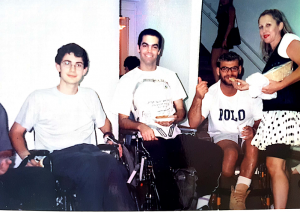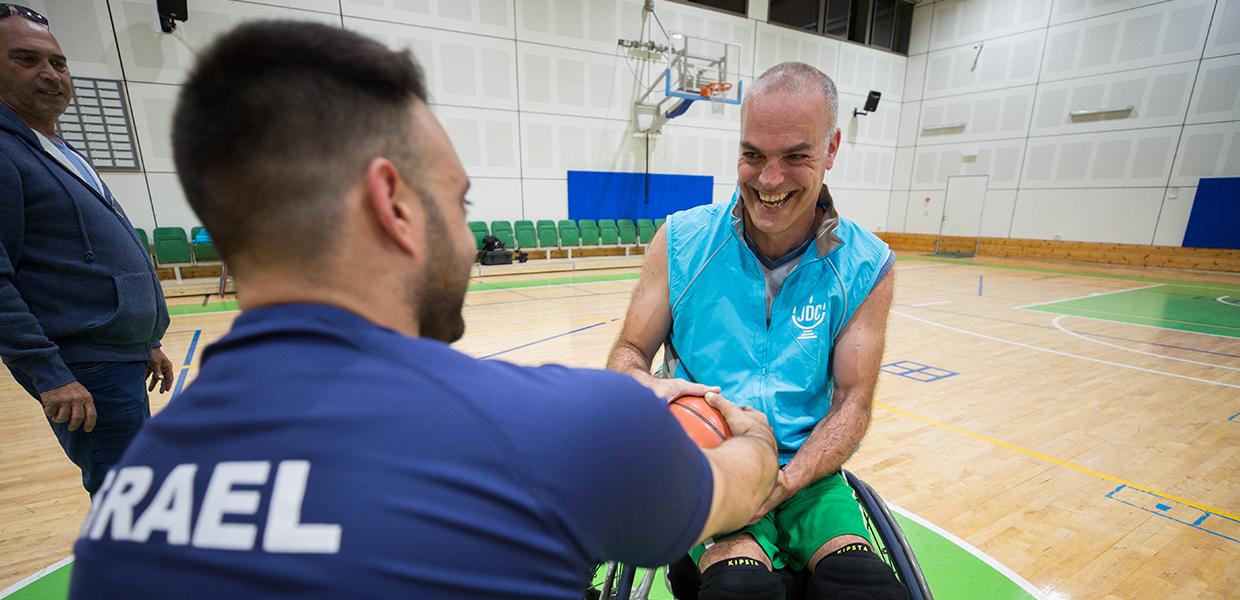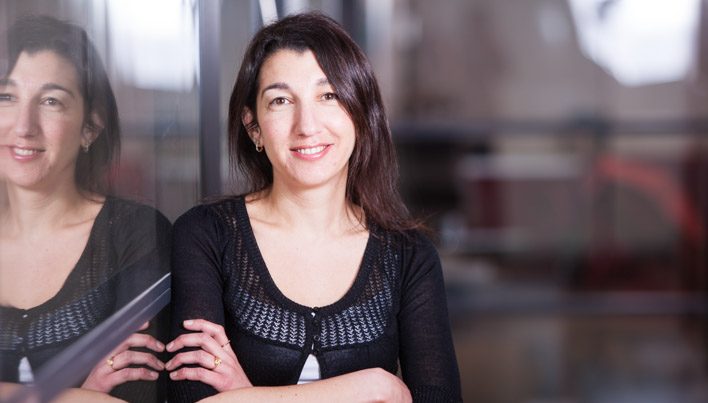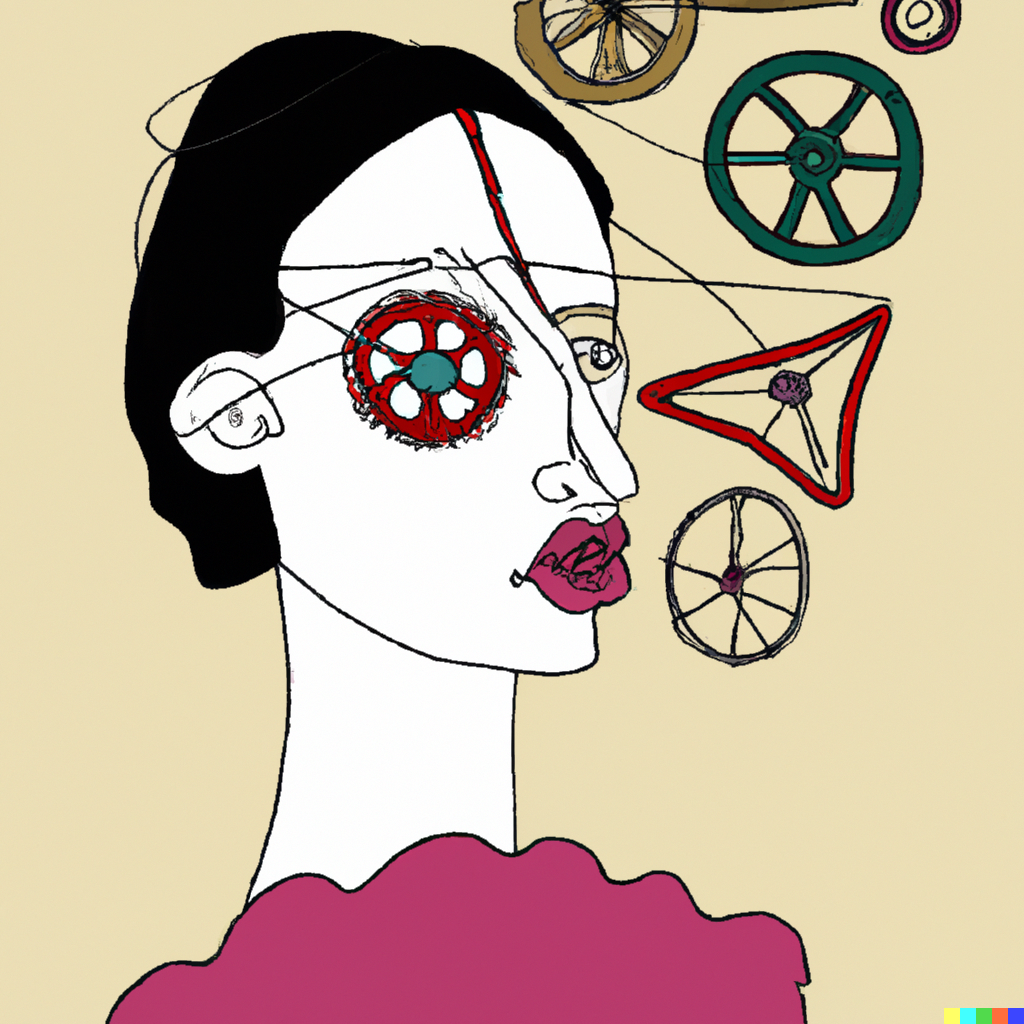“At the age of 25, some 23 years ago, my life was turned upside down as the result of an accident. I was a captain in the Navy, deputy commander of an operations vessel, in charge of 40 officers and soldiers. I lived in Tel Aviv and dreamed of the long trip abroad I would take after six years in the service.
“Suddenly, with no preparation, I found myself hospitalized and then in a rehab facility for six months with fractured vertebrae and uncertainty about my medical future. I needed help with the simplest things – getting out of bed, showering, tying my shoelaces, and suffered back pains after sitting in my wheelchair for only minutes.
“Accepting my changed situation was unbearable. I experienced a sense of loss and fear of things to come, but the rehab facility at the Sheba Medical Center gave me a certain sense of security, with a daily routine and a “protective” environment of people like me and in even worse shape.
“I lost that sense of security once I left the hospital and moved back into my parents’ home in the Kibbutz of Maayan Zvi. I felt alien in my body. From being a top athlete, active and energetic, I found myself in an almost opposite situation. Meetings with my friends and their pitying looks were too hard to handle.
“There was also a bright spot in the midst of the pain, darkness, and heavy fog of those days. I have a strong, supportive family that helped a lot in an emotional sense and in securing my rights, arranging transportation to treatment sessions, and more.

“I arrived at the Disabled Veterans Center (Beit Halokhem) in Haifa, where a dedicated, professional team looked after me. I joined a wheelchair basketball team that became a social support circle, a team of equals, and a place to renew my faith in my body and in my strength. Eventually, I was named captain of Israel’s wheelchair basketball team. About a year after my injury, I found love, moved in with her, started academic studies and my physical state quickly improved.
“I was lucky! Many of the people I met in rehab and in later years found it hard to rebuild their lives. They found themselves tossed about in a whirlpool of depression, helplessness, loneliness, passivity, neglect, and economic deterioration.
“Meeting people and hearing their hard stories made me want to take an active part in changing this reality. Energized by tremendous motivation and with the knowledge, I had acquired, I was lucky to find work at JDC’s Israel Unlimited as a program manager.
“My in-depth understanding of the need to help people in their transition from hospitalization to full integration in the community inspired me to develop the “Back Home” program, which has been run as a pilot by Maccabi Health Services for the past three years. Recently another HMO, Meuhedet, also started offering this service to those encountering difficulties in the smooth transition from hospital to full rehab at home and in the community and needing help restoring control over their lives.
“I derive immense satisfaction from knowing that the pilot program we developed with the Health Ministry and HMOs is providing far better service for many people like myself, facilitating a return to employment and productive lives that benefit them and society as a whole.”
The “Back Home” program accompanies and guides people in the difficult transition from hospitalization to full community integration and control over their “new” lives.
Two people are assigned to each participant – one who has undergone similar trauma and whose job is to serve as an inspiration, role model and guide, the other is a social worker who specializes in rehabilitation whose task is to build a personally adapted rehab program that includes solutions and services provided by welfare agencies, the NII, HMOs and more.
These two providers complement each other in weaving a support network for program participants in the first two years of their changed life, helping them in optimal convalescence, in gaining a sense of control and finding meaning to life despite their new physical and/or mental situation.





